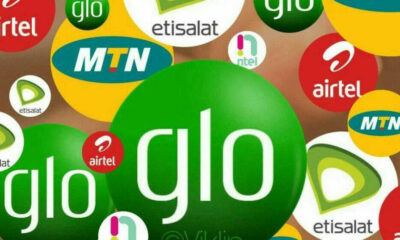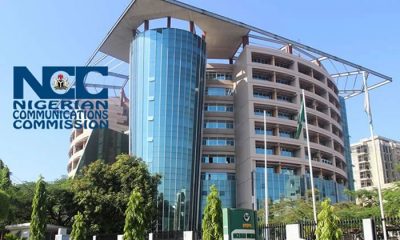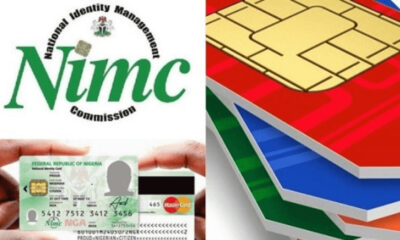Business
NCC moves to boost internet speed with 6GHz spectrum
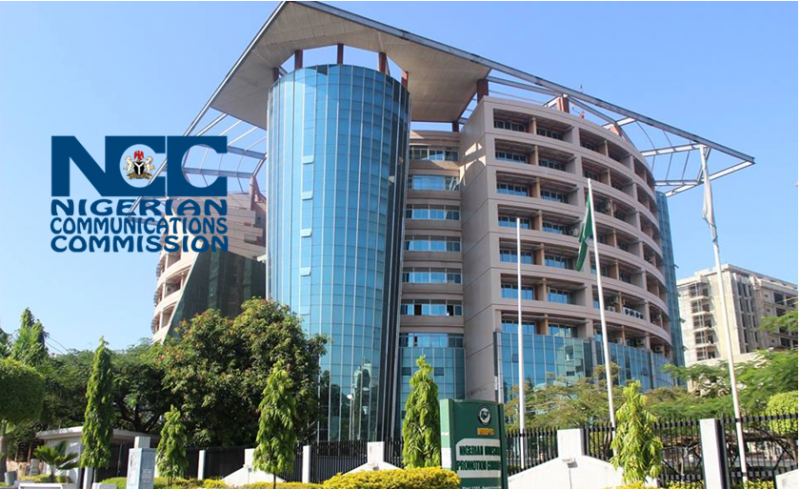
NCC moves to boost internet speed with 6GHz spectrum
The Nigerian Communications Commission (NCC) on Thursday said it has begun moves to harness 6GHz spectrum for improved internet speed in Nigeria.
The Executive Vice Chairman of the Commission, Dr. Aminu Maida, disclosed this during a Stakeholders’ Consultative Forum on Emerging Technologies in Lagos.
The 6 GHz spectrum is a band of radio frequencies that offers several benefits for wireless communication, including faster data rates and transmission speeds than previous bands.
According to the EVC, deploying this higher spectrum became necessary as the current 5GHz and 2.4GHz bands are facing capacity constraints.
Growing demands for speed
Maida, who was represented by the Executive Commissioner of Technical Services at NCC, Abraham Oshadami, said the move would address the growing demand for high-speed internet.
He added that Nigeria would be joining the league of countries already utilizing part of the 6GHz band for Wi-Fi -6 applications.
READ ALSO:
- Pension bill: Police retirees to embark on protest
- Actress Adunni Ade speaks on cab driver lawsuit threat
- Canada plans to cut foreign student visas
“The 6GHz band, spanning from 5925 MHz to 7125 MHz, offers a substantial increase in available spectrum, which is crucial for supporting the growing demand for high-speed internet and advanced applications.
“Wi-Fi plays a crucial role in the distribution of fixed broadband connectivity in homes, offices, and various other environments.
“The vast majority of home internet traffic is connected to the end-user through Wi-Fi.
“In enterprise settings, Wi-Fi is essential for handling large amounts of data and simultaneously connecting large numbers of devices with improved reliability, higher data throughput and lower latencies,” Maida said.
Overcrowded airwaves
Similarly, the Head, of Spectrum Administration at the NCC, Atiku Lawal, said that the overcrowded airwaves were currently limiting the potential of Wi-Fi in the 2.4GHz and 5GHz.
- Lawal said that it was not a surprise that more than seventy countries had already acted, or were considering acting on opening the 6GHz band for unlicensed Wi-Fi use.
- He noted that depending upon the country’s implementation plan, this decision would provide two to three times the spectrum available today.
- This is also expected to result in the ability to implement 80MHz and 160 MHz channels being available for the new Wi-Fi 6 standard ideal to support digital transformation efforts and use cases like high definition video and X Reality (XR).
“The commission’s decision to open the 6GHz frequency band for unlicensed Wi-Fi use is poised to revolutionize broadband connectivity in Nigeria.
READ ALSO:
- Edo poll: Court gives fresh order on APC candidate Okpebholo
- JUST IN: Edo declares Friday work-free day for gov election
- Ganduje not plotting to dethrone any Kano Emir – Aide
“This move will significantly enhance internet services, providing faster and more reliable connections. With the advent of Wi-Fi 6, users can expect higher data rates and increased capacity, making it ideal for high-demand environments such as stadiums, airports and offices,” he said.
He added that by offloading devices from cellular networks to Wi-Fi 6, the NCC aims to improve overall quality of service, alleviating capacity constraints and boosting broadband penetration in Nigeria.
Operators’ request
While commending the NCC, the Chairman of the Association of Licensed Telecoms Operators of Nigeria (ALTON), Gbenga Adebayo, pleaded with the Federal Government to assist operators in upgrading to the new spectrum.
- He said the appeal was coming because operators struggled to expand their networks.
- Adebayo, who was represented by the Executive Secretary, ALTON, Gbolahan Awonuga, said the telecom operators are not isolated from the harsh financial ecosystem.
“We need money to upgrade our infrastructure and import equipment, so as for us to benefit from the 6GHz.
“Our members are struggling to expand their infrastructure. We appeal to the federal government to come to our aid.”
NCC moves to boost internet speed with 6GHz spectrum
Aviation
Air Peace suspends flights nationwide over NiMet strike
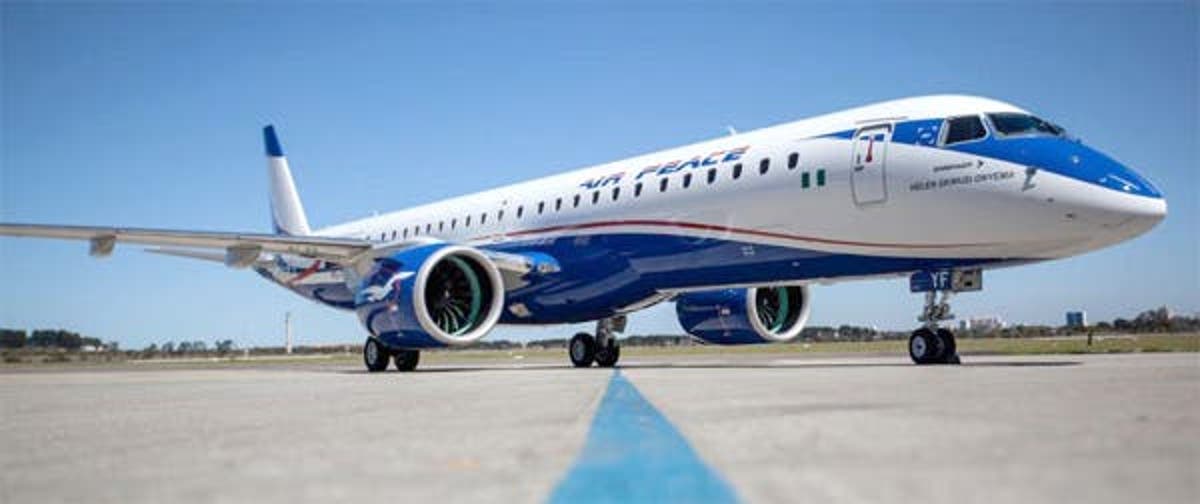
Air Peace suspends flights nationwide over NiMet strike
Air Peace has suspended all its flight operations across the country due to the ongoing strike by the Nigerian Meteorological Agency (NiMet).
The airline said in a statement on Wednesday that it was also suspending operations due to the unavailability of QNH (hazardous weather) reports required for safe landings.
“Due to the ongoing NiMet strike and the unavailability of QNH (hazardous weather) reports required for safe landings, Air Peace has suspended all flight operations nationwide until the strike is over,” Air Peace said.
“Your safety is our top priority. We appreciate your understanding and will share updates as the situation unfolds.”
The airline had earlier announced that the NiMet strike could lead to flight delays and cancellations across its network.
Air Peace added that it was monitoring the situation and working with relevant stakeholders to minimise the impact on customers’ travel plans.
Employees of NiMet commenced a nationwide indefinite strike over welfare issues on Wednesday.
Some of the issues raised involve “NiMet’s refusal to negotiate or implement agreed financial allowances and unresolved entitlements,” including wage awards, peculiar allowances, and outstanding payments from the 2019 minimum wage.
They also accused the management of the agency of withholding important documents, ignoring requests for inclusion of omitted staff in past payments, and neglecting key training programmes in favour of executive retreats.
Business
Nigeria’s gas production increases by 15.6% to 227,931.65 mscf

Nigeria’s gas production increases by 15.6% to 227,931.65 mscf
Nigeria’s gas output has increased 15,6 percent month-on-month, MoM, to 227,931.65 million standard cubic feet, mscf, in March 2025.
But on year-on-year, YoY basis, the nation’s gas output recorded a marginal increase to 227,931.65 mscf in March 2025, from 198,353.62 mscf, recorded in the corresponding period of 2024.
Data obtained from the Nigerian Upstream Petroleum Regulatory Commission, NUPRC, Gas Production Status reports indicated that of the total of 227,931.65 mscf produced in March 2025, 119,552.75 mscf was associated while 108,378.90 mscf was non-associated gas.
Associated gas is extracted in the process of producing crude oil while non-associated gas is produced without crude oil after much investment, exploration and development.
The Ministry of Petroleum Resources (Gas), which is directly involved in the development of policies, targeted at increasing investment in the sector said efforts have been made to increase investment and production of gas in Nigeria.
Similarly, in its recent report obtained by Vanguard, the Nigerian LNG Limited stated: “We are fully committed to expanding our operations with the NLNG Train 7 Project, which will boost our production capacity by 35%, increasing from 22 Million Tonnes Per Annum (mtpa) to 30 mtpa. This project underscores our role as a key player in the global LNG market and positions Nigeria as a top-tier supplier of LNG, leveraging its vast proven gas reserves of 202 trillion cubic feet (the 9th largest globally).
Vanguard
Business
Marketers count losses as NNPC slashes petrol price
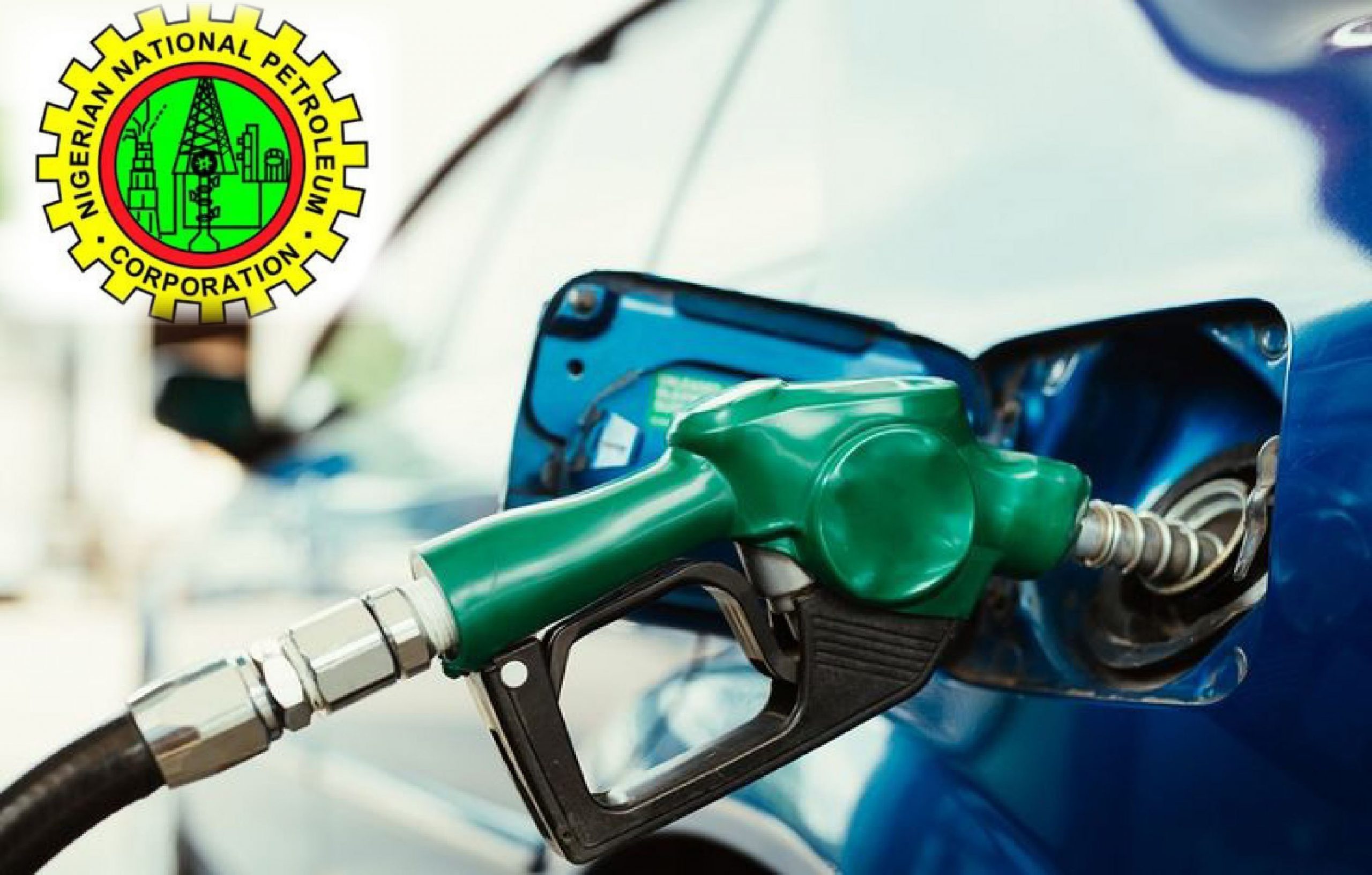
Marketers count losses as NNPC slashes petrol price
Petroleum product marketers have expressed frustration over financial losses following the Nigerian National Petroleum Company Limited’s (NNPC) recent reduction in the pump price of Premium Motor Spirit (petrol).
On Easter Monday, NNPC retail outlets across major cities adjusted their pump prices, with Lagos stations dropping from N925 to N880 per litre, while Abuja saw a similar drop to N880. In Kano, the price was revised from N950 to N935 per litre.
The unexpected price cut comes just days after the Dangote Refinery reduced its ex-depot price from N865 to N835 per litre—further intensifying pricing pressure on independent marketers who had stocked up at previous, higher rates.
The $20bn refinery also directed its partners like MRS, Heyden, and Ardova to sell a litre of petrol at the rate of N890 instead of N920 in Lagos, N900 in the South West, N910 in the South-South, and N920 in the North East.
READ ALSO:
- Insecurity: Presidency questions push for state police, accuses govs of not doing much
- Wike’s team warns Falana against ‘misleading his clients’
- Rivers: Fubara’s supporters praise Tinubu’s intervention with emergency rule
This newspaper observes that the new NNPC prices in Kano, Abuja, Port Harcourt and Lagos are N10-N15 lower than that of the Dangote refinery, signalling another price war between the two companies.
Our correspondent reports that some NNPC filling stations are still selling at the old rate. But marketers said these stations were given the liberty to exhaust old stock before adjusting to the new prices.
In an interview with our correspondent, the National Vice President of the Independent Marketers Association of Nigeria, Hammed Fashola, confirmed the price reduction, stressing that filling station operators were losing money.
He told our correspondent that NNPC Retail sent a memo to its outlets to effect the new prices.
“It is confirmed that NNPC has reduced PMS prices. It is now N880 per litre in Lagos. They sent messages to their retail outlets. Some of them have already put the price at N880. However, they allow those having old stock to continue selling at the old rate. Some are still selling at N910.
“Those are the ones that still have their old stock. So, the same thing applies to independent marketers. Those that have their old stock are still trying to see how they can dispense it,” he stated.
While acknowledging that the fluctuation in fuel prices is one part of deregulation, Fashola declared that marketers are losing money.
“The price reduction is a welcome development, but at the same time, it has a negative impact on the side of the marketers. We are losing money. That’s just the truth. We are losing money. That’s the bitter truth,” he said.
READ ALSO:
- UK records over 22,000 asylum-seeking Nigerians
- Driver crushes one-year old boy to death in Ekiti
- Bring your children to compete with mine, MC Oluomo challenges those mocking his spoken English
According to him, the price cuts are good for the masses, but marketers pay the price.
“On the side of the masses, Nigerians are better for it. People are getting cheaper fuel now, which is good. That’s the beauty of deregulation that we are talking about. There’s nothing anybody can do about it. But marketers are the ones bearing the losses, seriously.
Asked if there is any way to reduce the losses, he replied, “On the part of marketers, what we can do is just to try as much as possible to try and sell. We will reduce prices to a level that, at least, our losses will not be too much. So, you will be able to get rid of your old stock before you go to the market to buy at the new rate and start selling at the new rate.
On whether the petrol price could drop to N800 or N700 soon, Fashola refused to make projections.
“I don’t want to predict that. You know, two major factors determine this – the crude oil price and our exchange rate. So, I don’t want to predict the price. All these things have their implications. If the crude oil comes down to something like $50 per barrel, it has its own implications for our economy. It will affect the government revenue. At the same time, inflation and all that are also there. So, I don’t want to predict that,” he stated.
Recall that the Dangote refinery resumed price cuts after the Federal Government directed that the naira-for-crude deal should continue indefinitely.
Marketers count losses as NNPC slashes petrol price
(Punch)
-

 metro2 days ago
metro2 days agoRivers: Tinubu meets with Fubara, may lift his suspension
-
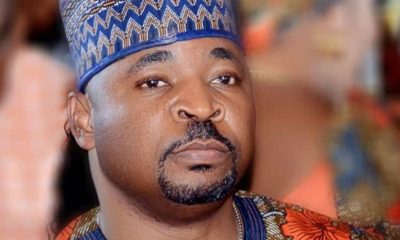
 metro2 days ago
metro2 days agoBring your children to compete with mine, MC Oluomo challenges those mocking his spoken English
-

 News2 days ago
News2 days agoTinubu returns to Nigeria after France, UK trip
-

 metro1 day ago
metro1 day agoI’m not in supremacy battle with Ooni, says new Alaafin
-

 metro3 days ago
metro3 days agoAnsar-Ud-Deen Society of Nigeria elects new leaders, Tinubu praises educational contributions
-

 Business2 days ago
Business2 days agoMarketers count losses as NNPC slashes petrol price
-

 metro3 days ago
metro3 days agoReno Omokri defends Tinubu’s appointments, blasts president’s critics
-

 metro3 days ago
metro3 days agoN10m raised to relocate boy who faced Peter Obi convoy — Lawyer

